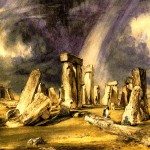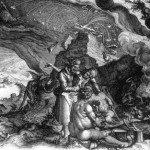If I were to ask you what Paganism involved, I’d wager you’d tell me something about the sacrality of Nature, a multiplicity of Gods, or a non-mainstream spirituality. But, what if I asked you about Scholasticism? Now that’s a different story.
Unfortunately, descriptions of Scholasticism have been retired to the history of philosophy, in the more polite cases at least. I say this is unfortunate because the Scholastics haven’t gone anywhere: their work as architects of thought was never decommissioned.
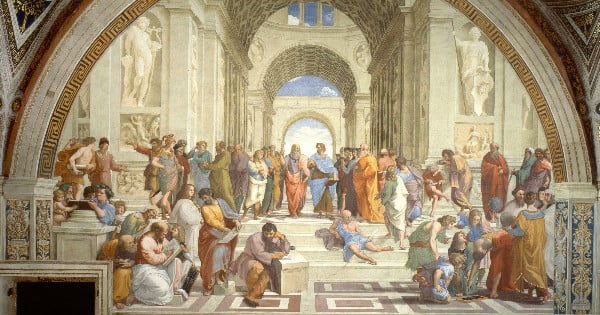
Scholasticism was the school of thought that revolutionized and dominated the medieval universities. It was revolutionary not only for prioritizing conceptual clarity and linguistic precision, but for embracing the theories of Pagans at a time when it was dangerous to do so. To the extent that their works were available at the time, the Scholastics – or the Schoolmen, as they were known – appropriated the ideas and arguments of Pagan luminaries such as of Plato and Proclus, but most especially of Aristotle.
Aristotle became something of a philosophical rock star to medieval scholars, even earning him the title “The Philosopher.” Plato’s Timaeus, for example, was one of the few Platonic texts available to the medieval Scholastics and it would fall into obscurity as Aristotle took center stage. As Paul Edward Dutton notes:
“After the twelfth century another period of relative neglect would set in. Thirteenth-century thinkers, preoccupied with a massive influx of Aristotelian texts and a few newly translated Platonic and Neo-Platonic books, had little time for the familiar Timaeus.” 1
From modern day Teheran and Spain to England and France, medieval Jewish, Muslim and Christian scholars translated and poured through the works of Aristotle, taking their ideas in deep and unforeseen directions.
While the Scholastics disagreed with one another on just about everything, they made use of the same theoretical tools, including Aristotle’s division of being into that which is actual and that which is potential, Aristotle’s theory of matter and form, and his doctrine of the Four Causes. Standing on the shoulders of The Philosopher, these Peripatetics erected astounding and ornate conceptual structures which stand even to this day as wonders of the intellectual world.
However, their crowning achievement was the rigor and elegance with which they adorned Classical Theism. This is an understanding of “God” that arises from classical philosophy, one by which they honored the principle and source of all existence, truth and goodness, with fidelity to experience and reason. The Scholastics harmonized the warring houses of ancient philosophy, teaching us that The One is really just The Good, and The Good is really just the Prime Mover. But, they weren’t content with mere consilience: the Schoolmen were prolific and, immersing themselves in deduction, they produced a copious literature about what God is like and how he (2) relates to us.
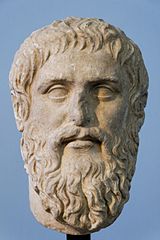
Metaphysics is another term I would not expect people to define or describe uniformly, nor even within the same ballpark as the Scholastics. The general view among the Scholastics is that metaphysics is something like the systematic study of the ultimate principles of being. I say “something like” because it’s difficult to condense the intricate and subtle theories of the Scholastics into a nine word description. However, the description captures the idea. It is interesting to note that the Scholastics tended either to include the study of God – his existence, attributes and operations – as a part of metaphysics, or to treat it as they treated other metaphysical subjects.
Their general method was not to begin with theory and end with experience; but, rather to begin with experience and end with theory. That is, the Scholastics did not start by formulating a hypothesis and then proceed to test it against experience; but, rather to begin with an experience of something and then proceed to abstract all circumstantial and non-essential details away until they arrived at a knowledge of what that something most fundamentally and essentially is. As such, the claims of Scholastic metaphysics do not rely on evidence, nor are they susceptible of disconfirmation: they unearth things about reality that are true, if they are, regardless of whatever else we happen to learn about it.
Classical metaphysicians speak to the things that natural science has to ultimately take for granted in order to operate. Given this schema, far from being able to undermine or override Scholastic positions, science – it would be argued – must in fact take them for granted.
If the study of God is to be included in metaphysics, then what is true of metaphysics is true of the study of God. As such, consider the blinding contrast between contemporary and traditional discussions on God: the former constructs “theistic hypotheses” and tries to test them against experience through the weighing of evidence while the latter abstracts necessary truths from experience and deduces from them that there is a principle of all existence, truth and goodness and that it is personal. The former could only ever yield an uncertain belief in God which could deteriorate at any point depending on the stability of our evidence while the latter is just the opposite.
Now, my purpose here is not to present or defend classical arguments for God’s existence; but, rather to briefly explain what Scholastic Paganism amounts to. Having given an exceedingly brief introduction to Scholasticism and the Classical Theism so integral to it, we can begin looking at how Scholasticism can synthesize with Paganism.
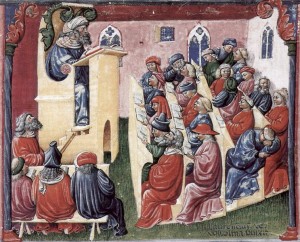
The penetrating insights of Scholasticism can animate and enrich one’s understanding of the sacrality of Nature, the reality and dignity of the Gods, and the depths of Pagan spirituality. Such a Pagan would tap into the magick of the Schoolmen and gain access to the captivating structures of being that underlie everything, such as the Final Cause and the Transcendentals.
Some might wonder or worry at the thought of merging with Paganism a philosophy for which Classical Theism is integral. To those who find the suggestion puzzling, it should be noted that the monotheistic religions which have appropriated God add purportedly revealed information about him to what we can know of him through reason. A Pagan who embraces Scholasticism would therefore not be committed to believing that God is a Trinity, that God has wrath toward us, or that God inspired any authors to write any sacred texts and so forth: these are all theological additions to the belief in God, and the Pagan is free to make her own!
For those who find the idea worrying, it should be noted that it was the honor of Pagans to first discover God through reason, and so this merge would amount to little more than a bringing to full circle what began with Pagans. Moreover, if it is of concern, God would no more undermine the reality or autonomy of the Gods than anything else we happen to think brought them into being. In fact, the Scholastic would say God secures the reality and autonomy of the Gods, inasmuch as she will argue that nothing could have any form of being for even a moment unless it participated in that which is Being itself (similar to how nothing could have heat even for a moment unless it participated in molecular motion).
By returning the study of the divine to metaphysics from its interim in the philosophy of religion in general, Scholasticism provides the Pagan with secure and fertile ground for theological reflection and investigation.
The Scholastic Pagan movement is very much embryonic at this stage, but this may change, for the Muse of the Schoolmen has issued her call once again for a generation of architects, only this time among those to whom she first whispered: the Pagans.
______
Steven Dillon is a Pagan author who works primarily in researching and developing theoretical foundations for Pagan beliefs and practices. Although he works with many Gods, he’s devoted to Diana. He loves spending time with his wife and unraveling puzzles. He is the author of The Case For Polytheism and blogs at Pagan Scholastic.
Footnotes:
1. Bernard of Chartres. The Glosae super Platonem of Bernard of Chartres. Edited by Paul Edward Dutton. Toronto: Pontifical Institute of Medieval Studies, 1991. 3.
2. Strictly speaking, the Scholastics argue that God is incomprehensible to us, such that while we may grasp that God is, we cannot grasp just what God is. As such, they ascribe different genders to God only metaphorically. In my writing, I tend to use the masculine for ‘God’ in homage to my upbringing, while I reserve the feminine for ‘Prime Mover’ and the neuter for ‘First Cause’. In my personal devotions, I refer to God as “Aletheia” because, as the Scholastics would say, everything is a disclosure of God. I take the same to be true of the divine in general, and in my devotions I call the Gods the Denudamini.


